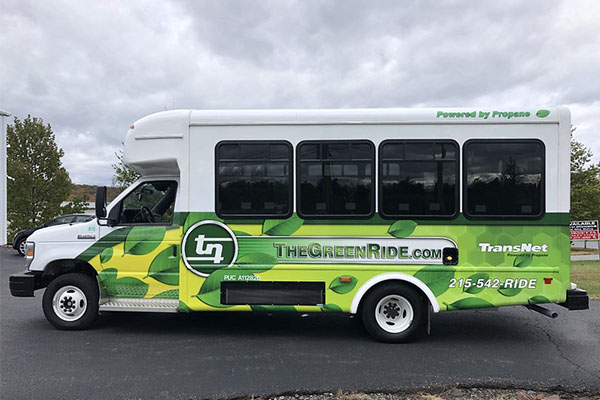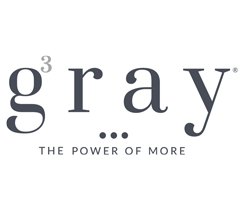TransNet expands propane paratransit fleet
TransNet, a community transportation service based in Pennsylvania, operates 22 Ford E-450 propane paratransit shuttles and will add 12 more vehicles to its fleet as part of its long-term sustainability plan.

Photo courtesy of Roush CleanTech
TransNet’s paratransit shuttles are used as demand-responsive transportation for its community. In an average (pre-COVID-19) year, each of TransNet’s paratransit shuttles travel almost 25,000 miles to transport aging community members, persons with disabilities, persons on medical assistance, school children and commuters. By running propane fleet vehicles, TransNet emits fewer greenhouse gases, smog-producing hydrocarbons and particulates versus comparable gasoline-fueled models.
“We take major strides to reduce TransNet’s carbon footprint and lessen harmful emissions, and our clean-operating propane paratransit shuttles are a big part of that effort,” says Susan Kopystecki, executive director of TransNet.
TransNet joined Eastern Pennsylvania Alliance for Clean Transportation (EP-ACT) as part of its sustainability plan.
“We compiled a detailed fleet analysis for TransNet that established propane as the most cost-effective option to reduce their carbon footprint,” says Tony Bandiero, executive director of EP-ACT, which assisted in securing $300,000 in funding from the Department of Environmental Protection’s Alternative Fuels Technical Assistance program.
“PennDOT also played a key role in assisting TransNet through the process of adopting propane vehicles and will continue to be a factor with future conversions of new grant vehicles,” Kopystecki adds. “Its dedication to promoting alternative fuel and sustainability throughout the state is commendable.”
All of TransNet’s propane paratransit shuttles are equipped with Roush CleanTech propane autogas fuel systems.
“Our Gen 5 propane system integrates the new powerhouse Ford 7.3-liter engine that is leaner, meaner and greener – making it more compact, more powerful and easier to maintain,” says Ryan Zic, vice president of sales of Roush CleanTech. “Plus, Roush CleanTech’s E-450 is certified to California Air Resources Board’s optional low nitrogen oxide emissions standard, drastically reducing tailpipe emissions and making it 75 percent cleaner than the federal standard.”
Roush CleanTech Ford E-450 vehicles are undergoing Federal Transit Administration’s (FTA) New Model Bus Testing Program (“Altoona Testing”), which allows its transit customers to apply for and receive FTA funds to help cover vehicle costs.
TransNet partnered with Sharp Energy, a subsidiary of Chesapeake Utilities Corp., to fuel its fleet.
“Safe and clean propane autogas is the leading alternative fuel for paratransit applications across the nation,” says Steve Whaley, director of autogas business development for the Propane Education & Research Council. “In addition to the environmental benefits, agencies operating propane buses save big on fuel and maintenance – savings that stretch tight budgets and taxpayer dollars.”
On average, propane costs about 40 percent less than gasoline and 50 percent less than diesel, according to Roush CleanTech.
TransNet has won a number of awards for its sustainability efforts, including the Air Quality Partnership Excellence Award from the Delaware Valley Regional Planning Commission.
















